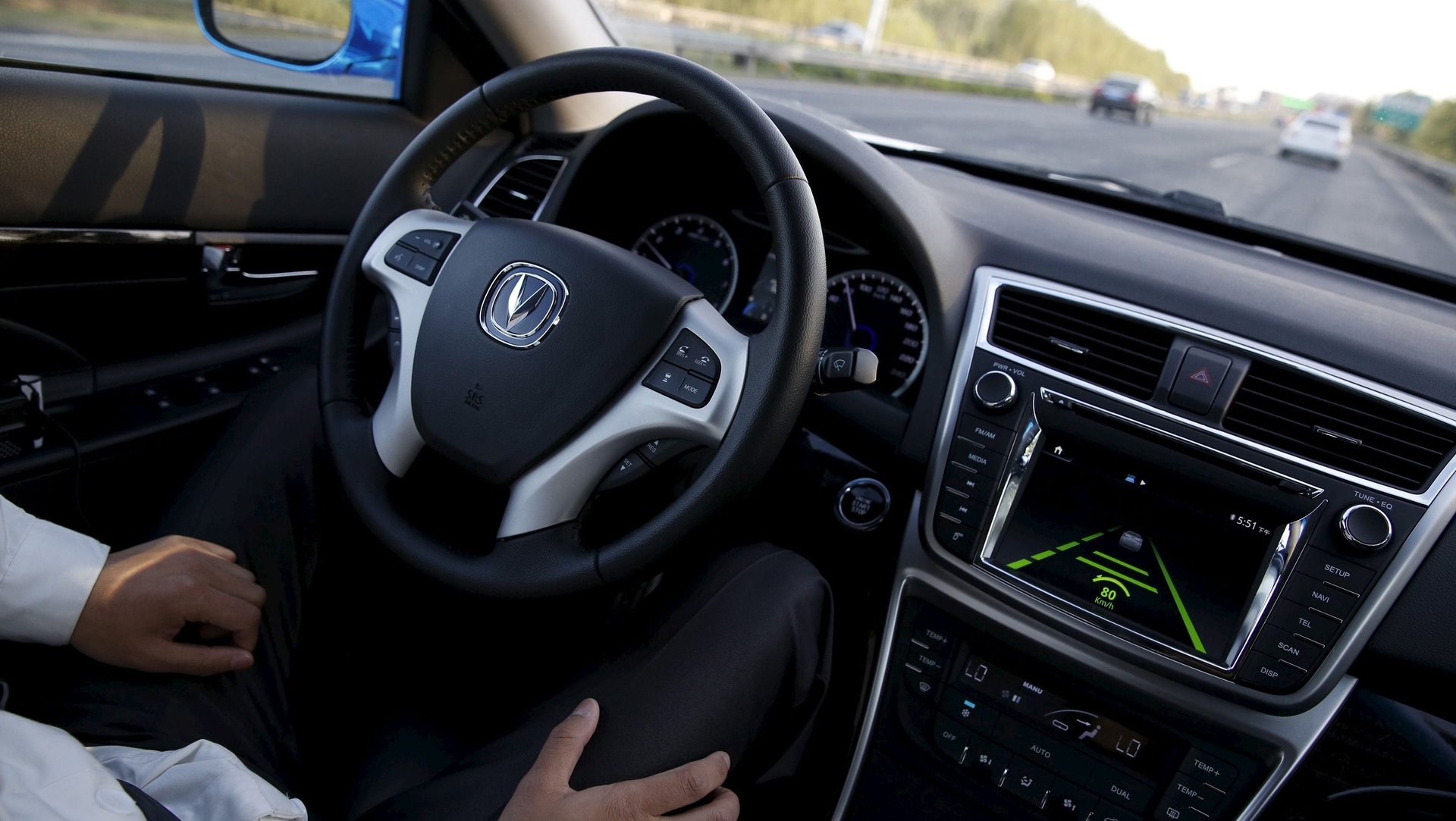China just made it easier for self-driving tests to take place on any road in the country
The recent Uber and Tesla fatal crashes in the US don’t seem to have dented China’s confidence in self-driving technology. On the contrary, China is easing rules to make it easier for domestic developers of driverless cars to test and improve their vehicles in the real world.


The recent Uber and Tesla fatal crashes in the US don’t seem to have dented China’s confidence in self-driving technology. On the contrary, China is easing rules to make it easier for domestic developers of driverless cars to test and improve their vehicles in the real world.
China’s Ministry of Transport, along with other authorities, has said that from next month (link in Chinese) all provincial and city governments will have the authority to allow road-testing of autonomous vehicles in their areas. Before this, only a handful of cities (link in Chinese) had the authority to pilot road tests, beginning with Beijing four months ago.
The notification says that companies applying for public road tests should have already tested the cars in closed roads and areas, and that a driver with at least three years of experience should always be in the driving seat and ready to take over if necessary. Firms have to record and store driving data for at least three years, and there’s also a time limit on the road test period of 18 months.
China’s speeding up its backing for the development of “intelligent vehicles” (link in Chinese), which the new rules define as those capable of partially or fully driving themselves. That’s a marked change compared with just last year, when authorities fined Baidu’s CEO Robin Li after the firm’s executives drove an autonomous car in Beijing in July. China said in January that it wants these cars to make up half of new vehicles (link in Chinese) on the roads by 2020.
In the race to put autonomous driving cars on the road, regulatory support makes a huge difference. Road testing allows companies to gather more data on unexpected situations (paywall) and improve how their technology deals with them. That’s harder to do in a controlled environment. In the US, Nevada was the first to create rules for autonomous cars in 2011, and many states followed suit. Waymo, Google parent Alphabet’s self-driving unit, has gathered some 4 million miles in road tests, and is now planning to roll out a driverless ride-hailing service this year in Phoenix, Ariz., one of the earliest states to allow self-driving tests on public roads.
In China, several large and smaller companies have obtained permission to test on roads this year, for the first time.
Baidu, China’s equivalent to Google, can now test fleets powered by its Apollo self-driving system on 33 roads. It hopes to mass produce (paywall) partially autonomous cars running Apollo as early as 2019. Major car manufacturer SAIC Motor Corp will also be testing autonomous technology. And startup Pony.ai has been doing test drives in southern China.